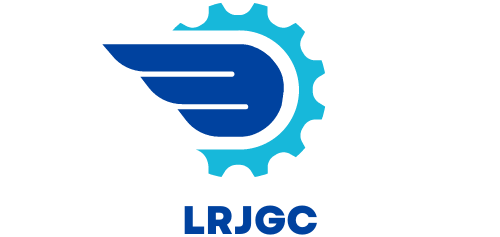In today’s fast-paced business environment, effective project management can make or break a company’s success. A well-structured project management workflow ensures that tasks are completed on time, resources are allocated efficiently, and team members stay aligned with the project goals. By streamlining processes, organizations can minimize risks and maximize productivity.
Understanding the fundamentals of project management workflow is crucial for anyone looking to improve their team’s performance. From initial planning to final execution, each step plays a vital role in achieving project milestones. Whether you’re a seasoned project manager or new to the field, mastering these workflows can elevate your projects to new heights.
Project Management Workflow
 Project management workflow consists of structured steps guiding a project from initiation to completion. These steps include planning, defining tasks, allocating resources, executing tasks, monitoring progress, and closing the project. Each step has its own significance:
Project management workflow consists of structured steps guiding a project from initiation to completion. These steps include planning, defining tasks, allocating resources, executing tasks, monitoring progress, and closing the project. Each step has its own significance:
-
Planning: Setting clear objectives and creating a roadmap
-
Defining Tasks: Breaking down the project into manageable tasks
-
Allocating Resources: Assigning team members, budget, and tools
-
Executing Tasks: Carrying out tasks as planned
-
Monitoring Progress: Tracking performance and making adjustments
-
Closing: Finalizing all activities and delivering the project
Key Components Of Project Management Workflow
Efficient project management workflows hinge on several key components. Understanding and optimizing these elements can significantly enhance team performance and project outcomes.
Task Management
 Task management involves organizing tasks to ensure seamless execution. It includes defining objectives, assigning responsibilities, and setting deadlines. Tools like Trello and Asana help teams track tasks efficiently.
Task management involves organizing tasks to ensure seamless execution. It includes defining objectives, assigning responsibilities, and setting deadlines. Tools like Trello and Asana help teams track tasks efficiently.
By using such tools, managers can visualize progress and identify bottlenecks early. Clear task management also boosts accountability among team members, leading to better performance.
Resource Allocation
Resource allocation focuses on distributing resources like personnel, tools, and materials to tasks. Effective allocation prevents resource conflicts and ensures optimal productivity. Software like Microsoft Project and Wrike assists in mapping out resources against project needs. Proper resource allocation ensures that teams have what they need to meet deadlines and achieve project goals.
Time Tracking
Time tracking monitors the hours spent on tasks to improve productivity and manage budgets. Tools like Toggl and Clockify provide insights into time usage, helping managers identify areas for improvement. Thorough time tracking enables accurate project timelines and ensures that teams remain within the defined schedules and budgets. This element is crucial for evaluating project efficiency and making data-driven decisions.
Tools For Effective Project Management Workflow
Software Solutions
Project management software streamlines workflow by consolidating tasks, timelines, and resources in one place. Microsoft Project provides extensive features for planning, scheduling, and tracking progress. Asana helps in task management with its intuitive interface and integration options. Wrike offers real-time collaboration and customizable dashboards to suit specific project needs.
Collaborative Platforms
Collaborative platforms ensure team cohesion and communication throughout the project lifecycle. Slack facilitates real-time messaging, file sharing, and integration with other tools, enhancing communication and collaboration. Microsoft Teams combines chat, video meetings, and file collaboration into one application, making it ideal for remote teams. Google Workspace offers shared documents, spreadsheets, and calendars, enabling seamless collaboration on tasks and schedules.
Best Practices For Optimizing Workflow
Clear Communication
Effective communication aligns teams with project goals. Use collaboration tools like Slack or Microsoft Teams to facilitate real-time updates and discussions. Schedule regular check-ins to address questions and provide feedback. Clear, concise communication prevents misunderstandings, ensuring that all team members are on the same page and can collaborate effectively.
Regular Monitoring
 Consistent monitoring tracks project progress and identifies issues early. Utilize software like Trello or Asana to visualize task completion and resource allocation. Evaluate project status in regular intervals, adjusting plans as needed to stay on track. Regular monitoring allows project managers to proactively manage risks and ensure alignment with project deadlines and quality standards.
Consistent monitoring tracks project progress and identifies issues early. Utilize software like Trello or Asana to visualize task completion and resource allocation. Evaluate project status in regular intervals, adjusting plans as needed to stay on track. Regular monitoring allows project managers to proactively manage risks and ensure alignment with project deadlines and quality standards.
Continuous improvement refines workflows and enhances productivity. Conduct post-project analysis to identify areas for enhancement. Implement feedback loops and encourage team members to share insights and suggestions. Tools like Jira can assist in managing iterative improvements.
Vital for Driving Project Success
Mastering project management workflows is vital for driving project success and enhancing team performance. By understanding and implementing structured steps from planning to execution, project managers can ensure timely task completion and efficient resource allocation. Leveraging tools like Trello, Asana, and Microsoft Project can streamline these processes, while methodologies such as Waterfall, Agile, and Scrum offer frameworks to suit various project needs.

